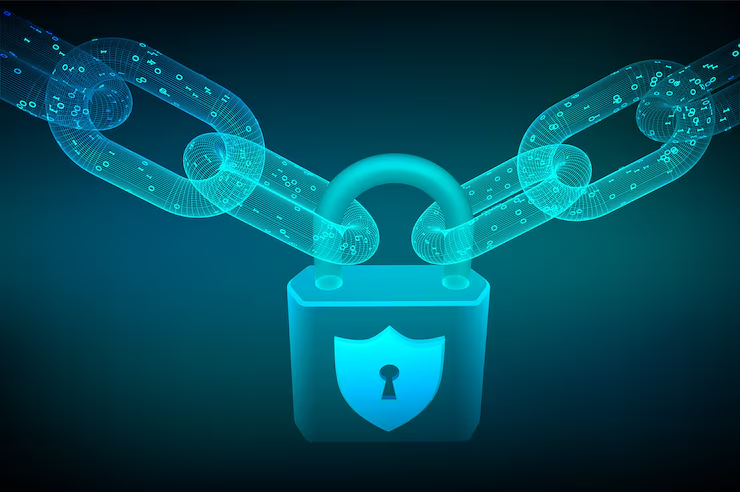The Importance of Data Encryption in SaaS Applications
In the fast-paced digital world, Software as a Service (SaaS) has become an integral part of businesses, offering flexibility and scalability. However, alongside its many benefits comes the critical responsibility of safeguarding sensitive data. This is where data encryption plays a pivotal role. Let’s dive into why data encryption is essential for SaaS applications and how it can protect your business and clients from potential threats.

Table of Contents
1. Introduction to Data Encryption
2. Why Encryption is Critical for SaaS Applications
3. How Encryption Works in SaaS Environments
4. Benefits of Data Encryption in SaaS
5. Challenges and Considerations
6. Conclusion
7. FAQs
Introduction to Data Encryption
Data encryption is like a digital lock and key for your information. It converts data into a code to prevent unauthorized access, ensuring that even if data is intercepted, it remains unreadable without the correct decryption key. In a world where data breaches and cyber threats are rampant, encryption acts as a formidable line of defense.
Why Encryption is Critical for SaaS Applications
With the shift to cloud-based services, SaaS applications host vast amounts of sensitive data, from personal user information to financial records. 📊 Without proper encryption, this data is vulnerable to attacks, potentially leading to severe financial and reputational damage for businesses.
Data Privacy Laws: Many industries are governed by stringent data privacy regulations, such as GDPR and HIPAA. Encryption helps businesses comply with these laws, avoiding hefty fines and legal consequences.
Trust and Reputation: Customers trust you with their data. Ensuring its safety through encryption not only builds trust but also enhances your brand reputation.
How Encryption Works in SaaS Environments
Encryption in SaaS involves several layers to ensure comprehensive protection:
End-to-End Encryption: This ensures that data is encrypted on the user’s device and remains encrypted until it reaches its final destination, protecting it during transit.
At-Rest Encryption: Data stored in the cloud should also be encrypted, safeguarding it from unauthorized access when it is not being used.
Key Management: Effective key management is crucial. It involves the secure creation, storage, and distribution of encryption keys, ensuring only authorized users can access the data.
Benefits of Data Encryption in SaaS
Implementing data encryption in SaaS offers a plethora of benefits:
🔒 Enhanced Security: Encryption provides a robust security layer, protecting against data breaches and cyber-attacks.
🌐 Global Compliance: Meet international data protection standards, making it easier to expand your business globally.
🛡️ Reduced Risk: Minimize the risk of financial and reputational damage due to data breaches.
💼 Business Continuity: In the event of a security breach, encryption ensures your business can continue to operate with minimal disruption.
Challenges and Considerations
While data encryption is a powerful tool, it comes with its own set of challenges:
Performance Impact: Encryption can sometimes slow down data processing speeds. It’s essential to balance security with performance.
Complex Implementation: Implementing encryption requires expertise and resources, which may be challenging for smaller businesses.
Key Management: Poor key management can lead to unauthorized access, defeating the purpose of encryption.
Conclusion
Data encryption is not just a technical necessity but a strategic advantage in the SaaS industry. In an era where data is the new oil, safeguarding it with encryption is essential to maintain trust, comply with regulations, and ensure business success. By understanding and implementing effective encryption strategies, businesses can secure their SaaS applications against evolving cyber threats.
FAQs
1. What is the main purpose of data encryption in SaaS?
Data encryption’s primary purpose is to protect sensitive information within SaaS applications from unauthorized access and breaches.
2. How does encryption affect SaaS application performance?
While encryption can slightly impact data processing speeds, modern technologies and optimized implementations can minimize these effects.
3. Is encryption necessary for all types of data in SaaS?
Yes, encrypting all types of data, whether sensitive or not, adds an extra layer of security and compliance with data protection regulations.
4. What happens if an encryption key is lost?
Loss of encryption keys can lead to data inaccessibility. Effective key management practices are critical to prevent such scenarios.
5. How can small businesses implement data encryption effectively?
Small businesses can leverage cloud service providers with built-in encryption features or partner with cybersecurity firms to implement robust encryption solutions.



